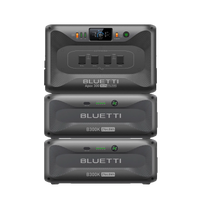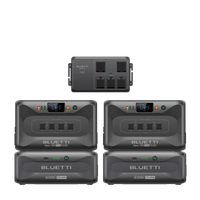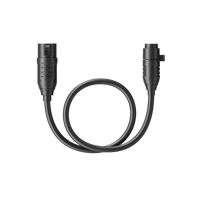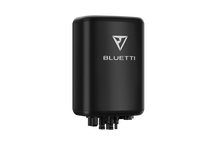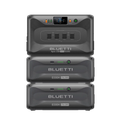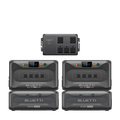Your cart is empty
Shop our productsIf you have solar panels and produce more energy than you need, you can send the excess energy back into the power grid through a program called net metering or NEM (Net Energy Metering). In exchange, you build up credits that can be applied to future grid-supplied energy consumption.
If you're considering adopting solar but are not sure how net metering will affect your savings, or just wish to familiarize yourself with net metering, you may be interested in this guide.
What Is Solar Net Metering?
With net metering, homeowners that use solar energy systems are compensated for any surplus power their installations contribute to the national grid.
Then, if your electricity needs exceed the amount of electricity produced by your solar system, you can use this net solar metering credit to offset the cost of electricity drawn from the grid.
Net metering for solar energy is regulated in various ways, depending on the state in question. Utilities in certain states voluntarily provide residential solar net metering schemes, whereas, in others, these programs exist because of governmental decisions. Due to these distinctions, the process for paying solar power system owners differs greatly from state to state; therefore, before deciding to feed excess electricity into the grid, you should research the net metering rates, regulations, and laws in your area.
How Is Solar Net Metering Calculated?
When you employ net metering, you only pay for the energy that really is used. The term "net energy" refers to the gap between the amount of energy generated by a solar panel system and the amount of energy used by the house. The net energy usage is calculated by subtracting the amount of electricity your home puts into the grid from the amount your home draws from the national grid when additional electricity is needed.
The net meter for a solar home with net metering capability detects energy going into and out of the home in both directions, unlike a traditional meter that only measures electricity being drawn from the grid. With today's digital displays, a net meter doesn't "spin" backwards when a customer sends electricity back into the grid, but it does show a positive or negative reading, depending on whether the customer is getting power from the grid or sending electricity back into it.
How much net metering credit for solar energy you receive is based on this assessment from your utility company (in order to ensure a fair compensation, make sure your net meter is in proper working order).
Your utility will not give you cash for the excess electricity you generate using solar energy since net solar metering exclusively rewards you for energy supplied into the grid. Instead, you will earn credit for each watt you contribute to the grid and apply that credit to your bill when you utilize electricity from the grid. As a result, you will save money on your monthly electricity payment.
If you install a sufficiently large solar panel system, it can generate enough energy to cover your annual electrical needs, thereby helping you eliminate almost your entire utility bill. Get in touch with a solar professional to learn about the solar energy metering laws in your area, as most utilities have limits on the amount of electricity one can create and feed into the grid – something known as maximum offset.
How Does Solar Net Metering Work?

Even though most households' electricity consumption is highest in the morning and evening, when people are getting ready for the day and returning from work and school, solar-powered homes actually generate the most electricity during the afternoons, when their usage is lowest.
During the afternoon, when more energy is generated than is being utilized, net energy metering guarantees that the surplus is transmitted to the grid and you receive credit from the utility company. If you generate 10 kilowatt-hours (kWh) of excess electricity, for instance, you will receive a net metering credit of 10 kWh.
At night, when everyone is asleep, the house draws the most power, but the sun can't shine on your solar panels. When this occurs, your accumulated credits can be applied to your energy bill. Since the amount of sunlight changes throughout the year, you can use the net metering credits you accumulate in the summer to reduce your electricity costs in the winter.
Is Solar Net Metering the SameAs Off-The-Grid Living?
Unlike off-the-grid living, net metering will not completely disconnect you fromthe power grid, but it will alter how you use your utility company. If you have an off-grid system, you do not tap into the power grid of a local utility and instead must rely only on solar energy to provide your household with electricity.
Having a solar battery system, for example, allows you to use the excess electricity produced by your solar panels during the day to keep your home running when the sun goes down. If you need more power, you won't be able to get it from the grid; you'll have to make do with what your system generates and stores in batteries.
When using an off-grid system without a backup generator, electricity will only be available to you if:
- The sun is shining and your panels can use the sunlight to produce electricity
- Some of the power generated by your solar panels have been stored in your solar battery system
A home that is on the grid (grid-tied) can use its net metering credits to offset the price of any electricity it draws from the grid, even if the sun is not shining. Only in the event of a grid outage will you be without power, and even then, a solar power system with a battery backup will allow you to continue using electricity.
How Does Net Metering Compare To Battery Storage?
Among battery storage and net energy metering, which option is more cost-effective?
However, if your area offers net metering, you can reap the benefits of both battery storage and net metering. That said, depending on circumstances, one option may feel more lucrative than the other.
For instance, if your region tends to have blackouts or power outages, adding a battery storage system to your net metering arrangement makes sense since the battery will allow you to use electricity even when the grid is inoperative.
If your state has poor net metering policies or no net metering programs at all, it is even more logical to incorporate battery storage into your solar power system.
Finally, if you are set on using only renewable energy and do not want your usage to rely on coal-driven energy or any other unclean sources, it may be prudent to invest in enough solar energy storage to enable you to live completely off the grid.
However, without the added cost of battery storage, you may be able to dramatically reduce your utility bill solely with net metering if it is legal in your state and the laws are favorable.
Energy storage net energy metering (also known as NEM paired storage) is another alternative that may be accessible to you. This arrangement permits you to release all of the power stored in your battery onto the grid in exchange for net energy metering credits, typically during periods of favorable pricing. This alternative is attractive because you can get paid more for the extra energy you generate and store, while also obtaining credit for that energy at any time of day, and not just when it is generated.
Benefits of Solar Net Metering
Net metering allows you to use the grid as a backup battery, reduces strain on the grid, and saves money on your electricity payment. We'll examine each of these advantages of net solar metering in greater depth below.
Lower Utility Bills
Solar panels can reduce your home's reliance on the grid, but if you do not receive net metering credit and have a mechanism to store any excess electricity, they can only do so during the hours that the sun is shining.
For instance, if you have energy credits worth $200 from selling excess electricity back into the grid on long, bright days, and you need $300 worth of electricity through the grid, your total utility bill will be significantly reduced because you will only be charged $100.
Shorter Payback Period
The payback period for solar energy systems is the length of time required for the money saved by using solar energy to pay off the initial cost of installing the system. Electricity produced after the payback period ends is effectively "free," as you will have recouped your initial investment.
Net metering can bring down the payback period. Full net metering, in particular, is effective in shortening in this regard due to the cumulative savings that result from using these policies. Hence, if you reside in a state that offers full net metering, you can recoup your initial solar panel investment significantly more quickly. This is due to the fact that homeowners in these areas can enjoy greater savings on their monthly electricity bills as a result of their solar panels, resulting in a faster rate of return on investment.
Besides net metering, the solar panel payback period can depend upon the following factors:
- The electricity price
- Tax rebates and credits
- The solar panel system size
- The electricity usage
- The installation cost
The Grid Begins To Serve As A Backup
Net metering allows you to use the national grid as a kind of "virtual battery" for 'storing' excess energy for later use. Imagine it as an invisible battery that kicks in whenever you need a boost in power.
Without net metering, you cannot benefit financially from the excess energy generated by your solar panels without making a more expensive initial investment in a battery system for storing electricity for later use.
Reduces Burden On The National Grid
Solar energy for businesses and homes is immensely beneficial to utilities since it eases the strain on the grid. Homeowners who install solar panels can generate their own electricity without drawing from the utility, reducing the burden on the distribution grid.
Moreover, with the help of net metering, solar-powered residences can even supply excess electricity to nearby non-solar properties, helping to meet the energy needs of both types of residences. Solar power helps reduce grid demand by producing electricity close to where it will be used. This reduces the load on the power grid's distribution and transmission facilities.
Optimize Your Finances With Solar Net Metering 
Solar net metering can help you lower your utility bills, reduce your dependence on the grid, and even ease the burden on the national grid.
If you are looking for a portable solar panel to reduce your electricity costs, we invite you to check out our wide range of options. We offer different types of portable solar panels, batteries, and kits, and can help you choose one based on your location, energy requirements, and net metering policies.
Shop products from this article
Be the First to Know
You May Also Like

What Does a 30% Federal Solar Tax Credit Mean and How to Apply?
Governments around the world are offering programs that encourage homeowners to switch to solar energy. Among the most notable programs is the 30% Federal Solar Tax Credit. It reduces your...

Deadly Flooding Devastates U.S. South and Midwest — What You Need to Know















